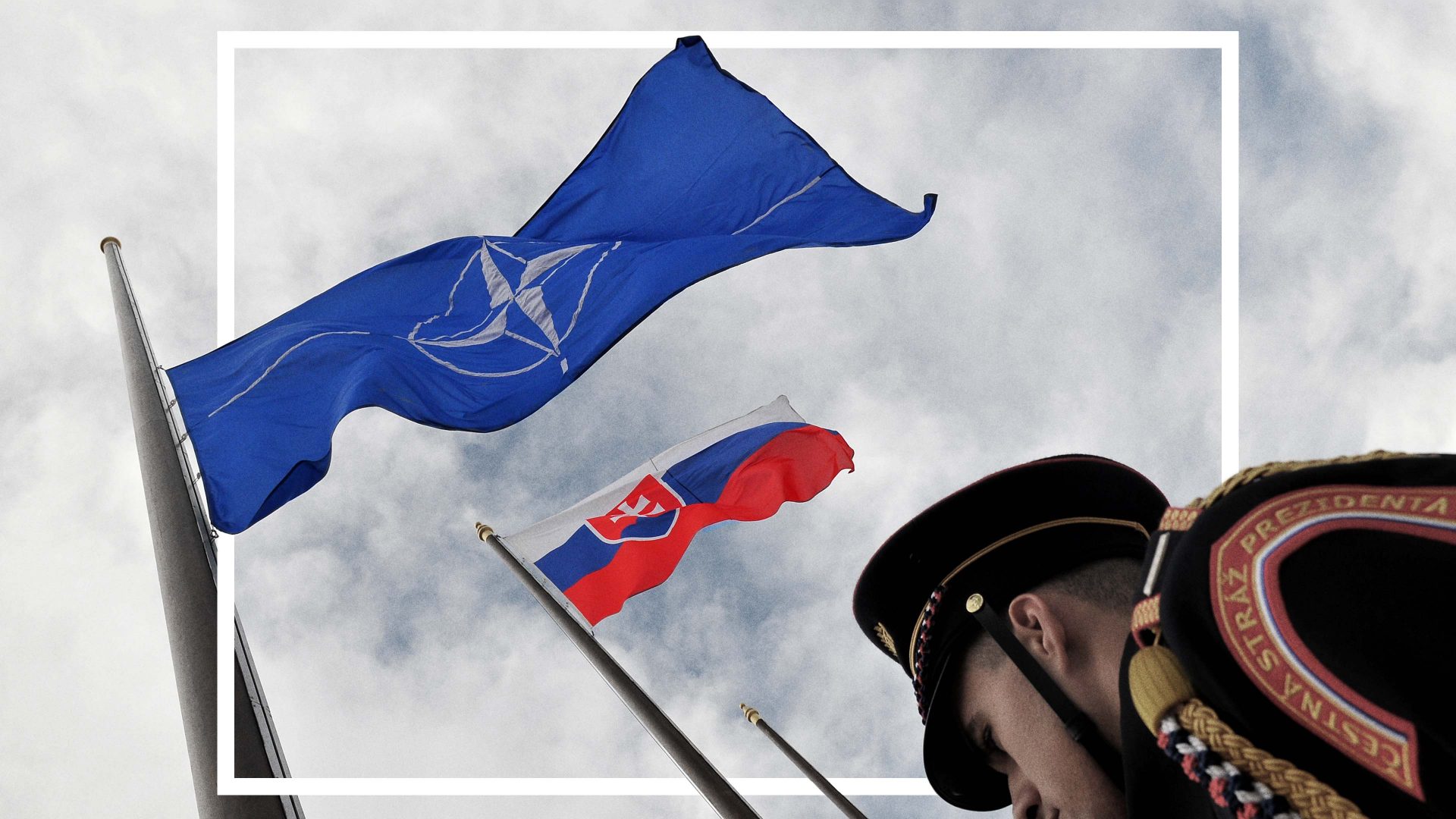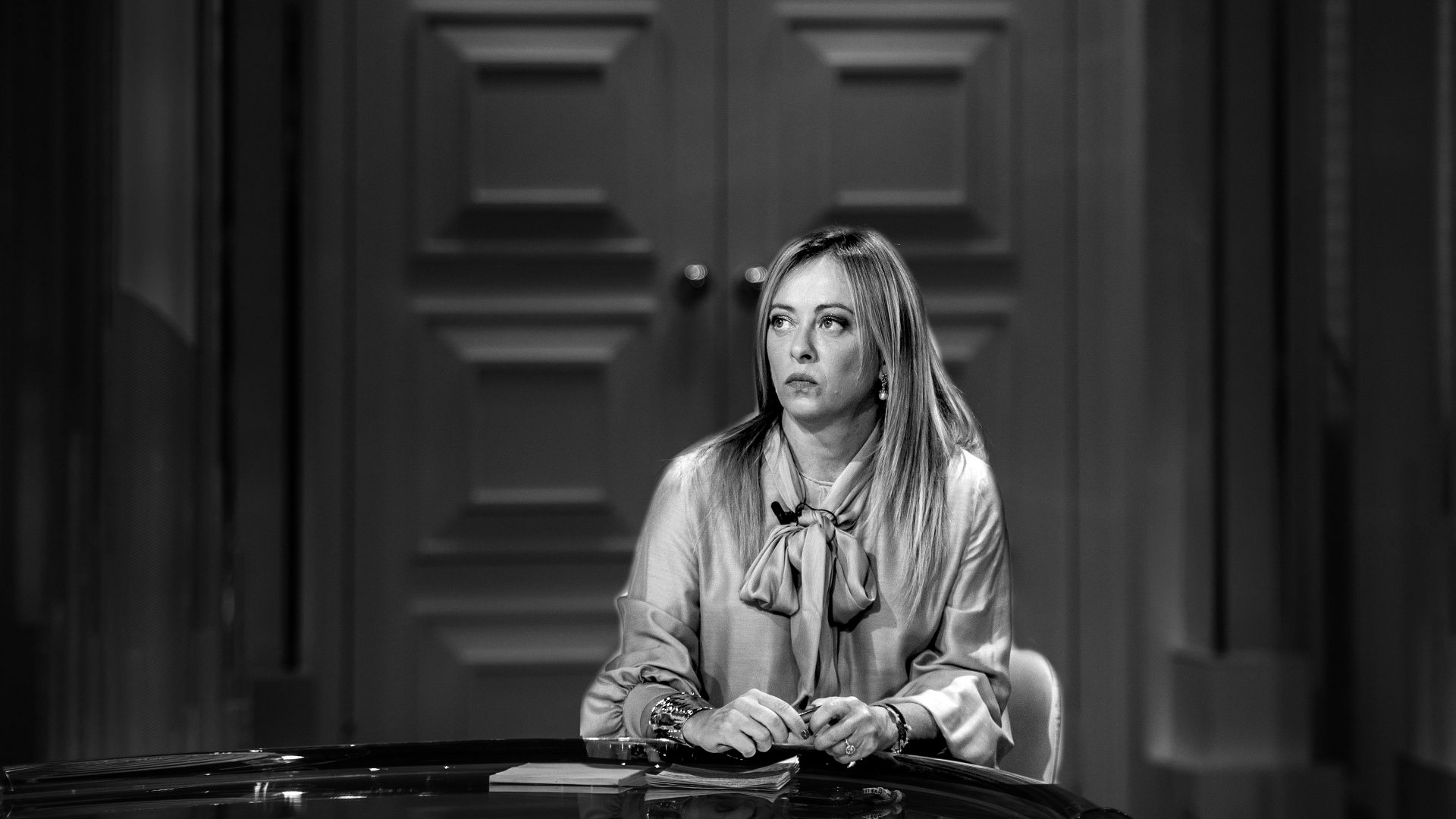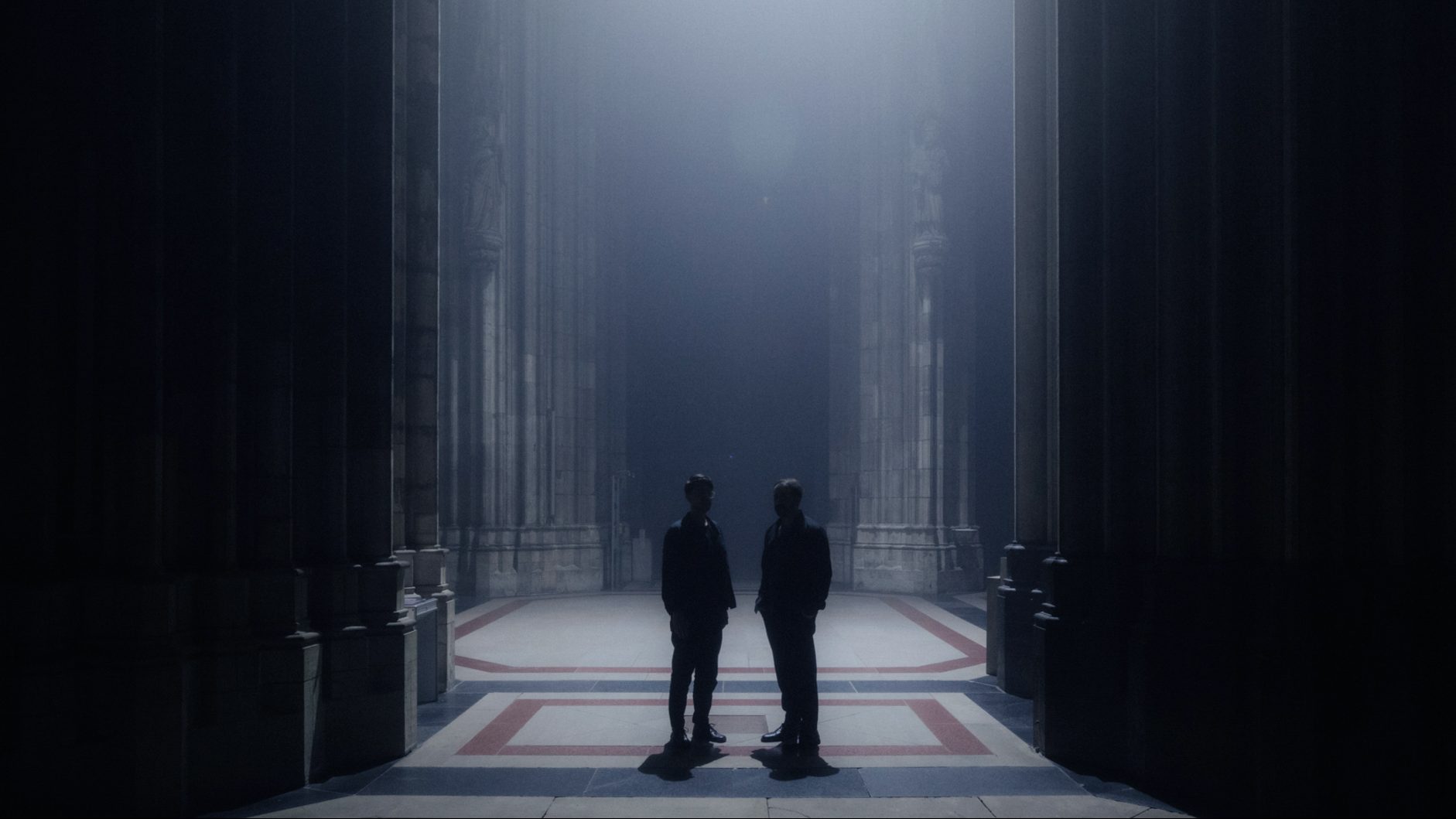It used to be said that Remainers gathered at places where you could order a flat white and feel among friends. Across Europe, this test seems to apply to broader cultural and political definition, as I saw for myself in Bratislava.
During a visit to the Slovak capital to talk about Russia, Ukraine, and the predicted return of right-wing populists in this autumn’s general election, I was twice invited for coffee at the Martinus bookstore. It is run by a guy called Michal Meško, a poster-boy for entrepreneurship, who seems to have cracked the model for online retail plus physical spaces.
Over two floors on an otherwise unexciting central street called Obchodna, the shop has a wide range of books in Slovak and English, with a particular penchant for start-up tips, wellness, that sort of thing. As for my choice of coffee: ‘Of course, coming up’, came the reply, in impeccable English.
At the risk of generalising (though everyone here seems to do it), that is one half of Slovakia: a young generation of digital nomads, well-spoken in several languages and not wedded to place. It is said that at any one time, up to five per cent of Slovakia’s workforce travels across the adjacent border with Austria. Think Vienna to Bratislava, think London to Reading, though that doesn’t quite render the charm.
The dividing line in Slovak society follows the same patterns – and cliches – as elsewhere: roughly half the country falling into the liberal metropolitan mindset, roughly half categorised as “left behind” and easily lured by authoritarian populists.
The consequences of the schism here will extend far beyond the frontiers of this landlocked country of five and a half million.
One of Ukraine’s strongest supporters, earlier this month Slovakia became the first NATO country to deliver fighter jets. In addition to four Soviet-era MiG-29 jets, two Kub short-range air defence systems were also delivered. It is not all altruism. The Slovaks have disposed of most of their Soviet-era kit, with a book value of €300 million and have had it replaced with more modern equipment from the EU and US worth three times as much. Still, the prime minister, Eduard Heger, was given an especially warm welcome on his second visit to Kyiv, telling his hosts that he will rummage around for more ammunition before he leaves office.
Ominously for Ukraine and for the West, the politics in Slovakia are expected to make a 180-degree turn. Heger’s government lost a vote of confidence last December and is treading water until the elections due on 30 September. Constitutionally, it is not supposed to make significant decisions while in this interim phase, but on Ukraine it is throwing caution to the wind, in the knowledge that all the main parties in the governing coalition are tanking in the polls and on their way out.
Cue Robert Fico, a mini-me version of Hungary’s Viktor Orban. prime minister between 2006 and 2010 and again between 2012 and 2018, Fico was forced to resign after mass protests that followed the murder of an investigative journalist and his fiancee.
Real change appeared on the horizon in 2020 when elections resulted in a victory for two new parties, colourfully called Ordinary People and Independent Personalities whose slogan was “zero tolerance of corruption will be the alpha and omega”. They came to power days before Europe went into lockdown. Slovakia, like everywhere else, atrophied. Much of the goodwill dissipated as the inexperienced leaders of a small country were thrust into the centre of an emergency.
After narrowly avoiding prosecution and lying low for a while, Fico is back, supercharged, railing against the arms shipments and declaring that ‘Ukrainian fascists’ started the conflict in 2014.
With Russia mounting a sophisticated disinformation online and in traditional media, much of the public, particularly in the smaller towns in the east of Slovakia, is leaning towards Fico’s version. Recent surveys suggest 60 per cent are against the provision of jets and 39 per cent think NATO and the US are responsible for the war in Ukraine.
The country’s president, Zuzana Caputova, elected at one of those brief moments when the progressives were in the ascendant, has warned the country is in an “information storm”. There is, she said, “a growing gap between decisions made by the state based on our values and national interests, and the stance of citizens.”
In other words, voters are being led astray. And they are. Polls suggest that Fico’s party, with the James Bond-sounding acronym, SMER, is in the lead. Following close behind is a grouping only marginally less toxic called Hlas, led by Robert Pellegrini, who briefly succeeded Fico as prime minister in 2018 and could end up the compromise candidate next time around. The Progressives, in deed as in name, are lagging in third place.
Political scientists point out that election campaigns here have often produced dramatic last-minute swings. The Czechs, who continue to influence their erstwhile compatriots, did not, despite all the propaganda harnessed by Moscow, revert to their erstwhile authoritarian Andrej Babis. Others cling to the hope that, even if Fico does prevail, he might be forced by circumstances (such as EU subsidies) to moderate his pro-Russian position. They point to Italy’s Georgia Meloni as a case in point. In other words, the range is between a little worse and a lot worse.
My last meeting was not in a bookshop or a modern office but in the Defence Ministry, a drab complex in the east of Bratislava which once housed the Marxist-Leninist political institute. Now in its corridors, three flags are paraded, EU, NATO and Slovak.
In his office, the deputy defence minister, Marian Majer, has on his mantlepiece a model of an American F16 and a Zuzana-2 Slovak-made Howitzer tank. He knows his time will soon be up; he fears for the younger, Western-orientated generation who will have to endure another lurch back into populism. “I worry a lot where this is all going. Are we about to throw away so much of the progress we have made?”




